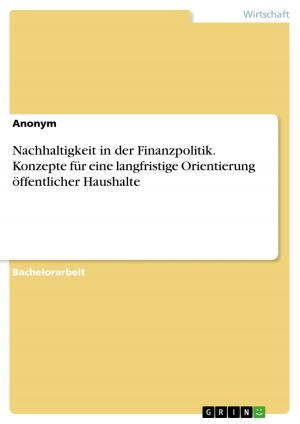The Late Middle Ages in England - An Introductory Lesson in Class Nine
An Introductory Lesson in Class Nine
Nonfiction, Reference & Language, Study Aids, ESL, Foreign Languages| Author: | Gaby Schneidereit | ISBN: | 9783638375795 |
| Publisher: | GRIN Verlag | Publication: | May 9, 2005 |
| Imprint: | GRIN Verlag | Language: | English |
| Author: | Gaby Schneidereit |
| ISBN: | 9783638375795 |
| Publisher: | GRIN Verlag |
| Publication: | May 9, 2005 |
| Imprint: | GRIN Verlag |
| Language: | English |
Seminar paper from the year 2003 in the subject English - Pedagogy, Didactics, Literature Studies, grade: gut (2+), University of Dusseldorf 'Heinrich Heine' (Heinrich-Heine-Universität Düsseldorf), course: Hauptseminar: Teaching English Literature from Medieval Times to the Early Renaissance, 9 entries in the bibliography, language: English, abstract: The following piece of work entirely dedicates itself to the era of the Late Middle Ages. My model lesson does not concentrate on a particular aspect of this era, but gives an overview of a lot of topics. It can therefore be regarded as a multifunctional preparatory lesson: the first step into the overall thematic is portrayed and lots of occasions are given to find different fields to reflect upon. I prefer this open - but fixed - thematic because my target is not to provide the pupils with an overdose of facts. I want to offer them a general idea, an outline of the Middle Ages and would rather like them to understand the mentality of this time than to learn too many facts and dates by heart. According to the authors of the SMART-study, my approach is right: 'the need to provide an overview, a framework, a sense of unity and coherence [is characterized as] centrally important'. Apart from that, I pursue the aim of enabling the children to read medieval literature. The knowledge of the medieval way of thinking is an important condition in order to study written works dating from this era. It is interesting that we are looking back to ancient times because of two reasons: on the one hand, we want to get an impression of the living conditions which formed the background of medieval literature. On the other hand, 'medieval history and literature [...] [are] simply essential to a proper understanding of our own [stress: Ga.Sch.] society, which is not only heir to, but to a large degree the creation of, the Middle Ages'. Consequently, this epoch actually does not need any justification, its significance even in today's life makes it obvious enough why we should deal with this topic at school. We live in a society which is coined by the Middle Ages, and this has to be mirrored in school life as well - 'we cannot study literature or political history [...] in isolation; all of our studies are ultimately studies of the entire culture of the Middle Ages'3. That implies that the Middle Ages, their diversity and mysteriousness, their inventions and effects on our present time, are just part of our general knowledge, and one cannot avoid to be confronted with them. In my essay I will design a fictitious English lesson in a ninth class of a Grammar School. [...]
Seminar paper from the year 2003 in the subject English - Pedagogy, Didactics, Literature Studies, grade: gut (2+), University of Dusseldorf 'Heinrich Heine' (Heinrich-Heine-Universität Düsseldorf), course: Hauptseminar: Teaching English Literature from Medieval Times to the Early Renaissance, 9 entries in the bibliography, language: English, abstract: The following piece of work entirely dedicates itself to the era of the Late Middle Ages. My model lesson does not concentrate on a particular aspect of this era, but gives an overview of a lot of topics. It can therefore be regarded as a multifunctional preparatory lesson: the first step into the overall thematic is portrayed and lots of occasions are given to find different fields to reflect upon. I prefer this open - but fixed - thematic because my target is not to provide the pupils with an overdose of facts. I want to offer them a general idea, an outline of the Middle Ages and would rather like them to understand the mentality of this time than to learn too many facts and dates by heart. According to the authors of the SMART-study, my approach is right: 'the need to provide an overview, a framework, a sense of unity and coherence [is characterized as] centrally important'. Apart from that, I pursue the aim of enabling the children to read medieval literature. The knowledge of the medieval way of thinking is an important condition in order to study written works dating from this era. It is interesting that we are looking back to ancient times because of two reasons: on the one hand, we want to get an impression of the living conditions which formed the background of medieval literature. On the other hand, 'medieval history and literature [...] [are] simply essential to a proper understanding of our own [stress: Ga.Sch.] society, which is not only heir to, but to a large degree the creation of, the Middle Ages'. Consequently, this epoch actually does not need any justification, its significance even in today's life makes it obvious enough why we should deal with this topic at school. We live in a society which is coined by the Middle Ages, and this has to be mirrored in school life as well - 'we cannot study literature or political history [...] in isolation; all of our studies are ultimately studies of the entire culture of the Middle Ages'3. That implies that the Middle Ages, their diversity and mysteriousness, their inventions and effects on our present time, are just part of our general knowledge, and one cannot avoid to be confronted with them. In my essay I will design a fictitious English lesson in a ninth class of a Grammar School. [...]















